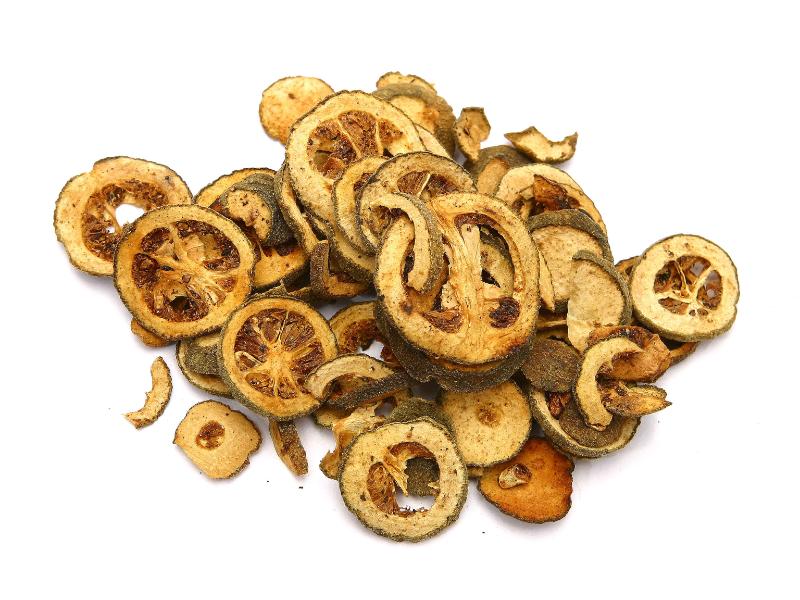Search in medicinals
Aurantii Fructus Immaturus
Unripe bitter orange
枳实 〔枳實〕 zhǐ shí

Kingdom: Plant
Origin in PRC Pharmacopoeia: Citrus aurantium L.; Citrus sinensis Osbeck. (PRC Pharmacopoeia)
Origin in unofficial sources: Citrus sinensis Osbeck*; Poncirus trifoliata (L.) Raf.; Citrus aurantium L.*; Citrus wilsonii Tanaka; Citrus wilsonii Tanaka
Use: Medicinal
Category: Qì-rectifying agents
Properties: Bitter, acrid; slightly cold. (Some sources list this medicinal as warm.)
Channel entry: Spleen and stomach channels.
Actions and indications:
- Breaks qì and eliminates glomus: Food accumulation; gastrointestinal heat bind with qì stagnation.
- Transforms phlegm and disperses accumulations: Phlegm stagnation with glomus and fullness in the chest and stomach duct; chest impediment or chest bind.
- Additional uses: Zhǐ shí is used to increase the effect of treatments for prolapse of the uterus or prolapse of the rectum. For treating cold dysentery with prolapse of the rectum, it may be used alone or in a large dose as a courier medicinal in combination with medicinals that supplement qì and upbear yáng.
- Modern applications: Zhǐ shí has recently been used in the treatment of coronary heart disease with angina pectoris.
Dosage and method: Oral: 3–10g in decoctions; high doses use up to 30g. Its nature becomes more balanced after stir-frying.
Warnings: Use with care in pregnancy.
Product description: Citrus aurantium: spherical, 0.8–3 cm in diameter, with grayish or blackish green skin, and 7–12 segments. It is supplied pre-cut.
Quality: Small fruits with blackish green skins are the best.
Production area: Citrus aurantium: Sìchuān, Jiāngxī, and Zhèjiāng. Poncirus trifoliata: Fújiàn, Shǎnxī (Shaanxi), Shānxī, Guǎngxī, and Táiwān. Citrus Wilsonii: Jiāngxī and Sìchuān.
Back to search result Previous Next